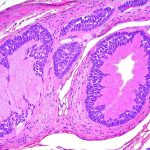Prostatitis, an inflammation of the prostate gland, can be incredibly debilitating, impacting everything from urinary function to overall quality of life. While conventional treatments like antibiotics are often prescribed, growing research suggests that nutritional interventions play a significant role in supporting recovery and managing symptoms. Many men facing prostatitis find themselves seeking ways to proactively improve their health alongside medical care, and understanding the connection between diet and prostate health is crucial for empowering those choices. This isn’t about replacing established treatments; it’s about complementing them with strategies that can potentially accelerate healing and enhance long-term wellbeing.
The prostate gland requires a specific set of nutrients to function optimally and withstand inflammatory stress. A deficiency in these key elements can exacerbate prostatitis symptoms, while adequate intake may help reduce inflammation, support immune function, and promote tissue repair. It’s important to note that the type of prostatitis (acute bacterial, chronic bacterial, chronic prostatitis/chronic pelvic pain syndrome, or asymptomatic inflammatory) influences specific nutritional needs, but some core nutrients consistently emerge as beneficial for most individuals experiencing prostate issues. This article will explore those critical nutrients, detailing how they contribute to faster recovery and improved quality of life for men dealing with this challenging condition.
The Core Nutrient Powerhouse: Vitamins & Minerals
Several vitamins and minerals are foundational for prostate health and play a vital role in managing prostatitis symptoms. Zinc, often heralded as the most important mineral, is highly concentrated within the prostate gland and is essential for proper immune function, wound healing, and antioxidant defense. Low zinc levels have been linked to increased inflammation and impaired prostate function. Similarly, selenium acts as an antioxidant, protecting cells from damage caused by free radicals which are commonly elevated during inflammatory processes. Vitamin D deficiency has also been correlated with a higher risk of prostatitis, potentially due to its role in immune regulation and anti-inflammatory properties.
Beyond these key players, vitamins C and E contribute significantly to the body’s overall antioxidant capacity, fighting off oxidative stress that can worsen inflammation. Magnesium is another vital mineral involved in muscle relaxation (important for pelvic floor health) and nerve function, potentially alleviating some of the pain associated with chronic prostatitis/chronic pelvic pain syndrome. Obtaining these nutrients through a balanced diet rich in fruits, vegetables, nuts, seeds, and lean proteins is ideal, but supplementation may be considered under the guidance of a healthcare professional if dietary intake is insufficient.
A crucial aspect to remember is bioavailability. Simply consuming these vitamins isn’t enough; the body needs to efficiently absorb and utilize them. Factors like gut health, existing nutrient deficiencies, and interactions with other medications can impact bioavailability. Therefore, focusing on whole food sources and considering digestive support (such as probiotics ) can enhance nutrient absorption.
Anti-Inflammatory Fatty Acids & Prostate Health
Chronic inflammation is a hallmark of many types of prostatitis, particularly chronic prostatitis/chronic pelvic pain syndrome. Addressing this inflammation through dietary interventions is paramount for recovery. Omega-3 fatty acids, found abundantly in fatty fish (salmon, mackerel, sardines), flaxseeds, chia seeds, and walnuts, are renowned for their potent anti-inflammatory properties. They help modulate the inflammatory response by influencing the production of eicosanoids – signaling molecules that play a key role in inflammation.
Incorporating omega-3s into your diet can help reduce prostate swelling, alleviate pain, and improve urinary function. However, it’s crucial to balance omega-3 intake with omega-6 fatty acids. The modern Western diet is often heavily skewed towards omega-6s (found in vegetable oils), which can promote inflammation if consumed in excess without sufficient omega-3 counterbalancing. Aiming for a healthy ratio of omega-3 to omega-6 is essential. Furthermore, consider the source and quality of your omega-3 supplements, opting for those that are purified to remove contaminants like mercury.
Another beneficial fat is monounsaturated fat, found in avocados, olive oil, and nuts. These fats also possess anti-inflammatory properties and contribute to overall cardiovascular health, which is important given the potential link between heart health and prostate function. Reducing intake of saturated and trans fats, commonly found in processed foods and red meat, can further support an anti-inflammatory dietary pattern.
The Role of Specific Phytochemicals
Phytochemicals are naturally occurring compounds found in plants that offer a wide range of health benefits. Several phytochemicals have shown promise in supporting prostate health and aiding prostatitis recovery:
- Lycopene: Found primarily in tomatoes (especially cooked), lycopene is a powerful antioxidant linked to reduced risk of prostate cancer and improved prostate function. It may help protect against oxidative stress and inflammation within the prostate gland. Consuming tomato paste or sauce regularly can be a beneficial addition to your diet.
- Resveratrol: Present in grapes, berries, and red wine (in moderation), resveratrol exhibits anti-inflammatory and antioxidant properties. It may help reduce prostate swelling and improve urinary symptoms.
- Quercetin: Found in onions, apples, and broccoli, quercetin is a flavonoid with potent anti-inflammatory effects. It can help stabilize mast cells, reducing histamine release and alleviating some of the pain associated with chronic prostatitis.
These phytochemicals are best absorbed when consumed alongside healthy fats, as they are fat-soluble compounds. Incorporating these foods into your diet provides not only valuable nutrients but also a variety of other beneficial plant compounds that contribute to overall health. It’s important to remember that food first is the ideal approach; supplementation should be considered complementary rather than a replacement for a nutrient-rich dietary pattern.
Hydration & Fiber: Often Overlooked Essentials
While focusing on specific nutrients, it’s easy to overlook the fundamental importance of adequate hydration and fiber intake. Proper hydration is crucial for flushing out toxins, reducing inflammation, and maintaining healthy urinary function. Dehydration can concentrate urine, irritating the bladder and prostate, potentially exacerbating prostatitis symptoms. Aiming for 8-10 glasses of water daily is generally recommended, but individual needs may vary based on activity level and climate.
- Fiber intake plays a vital role in digestive health and overall inflammation control. A diet rich in fiber promotes regularity, preventing constipation which can put pressure on the prostate gland and worsen symptoms. Fiber also supports gut microbiome diversity, which is increasingly recognized as crucial for immune function and anti-inflammatory responses. Good sources of fiber include fruits, vegetables, whole grains, and legumes.
Supporting Gut Health for Optimal Recovery
The gut-prostate axis is an emerging area of research that highlights the interconnectedness between gut health and prostate function. A healthy gut microbiome can modulate inflammation, enhance immune function, and even influence hormone metabolism – all factors relevant to prostatitis recovery.
- Probiotics: These beneficial bacteria found in fermented foods (yogurt, kefir, sauerkraut) or supplements can help restore a balanced gut microbiome. They may reduce inflammation and improve immune function. Best Probiotics for prostatitis recovery are readily available.
- Prebiotics: These are types of fiber that feed the beneficial bacteria in your gut. Sources include garlic, onions, leeks, asparagus, and bananas.
- Eliminate Processed Foods & Sugar: A diet high in processed foods and sugar can disrupt the gut microbiome and promote inflammation. Reducing these foods is essential for supporting a healthy gut environment.
Addressing gut health isn’t just about taking probiotics; it’s about cultivating a long-term dietary pattern that nourishes your gut microbiome and supports its diversity. This holistic approach to nutrition, focusing on both specific nutrients and overall gut health, can significantly enhance recovery from prostatitis and improve long-term wellbeing.
Disclaimer: This article provides general information and is not intended as medical advice. Please consult with a qualified healthcare professional for personalized guidance regarding your specific condition and treatment plan.





















